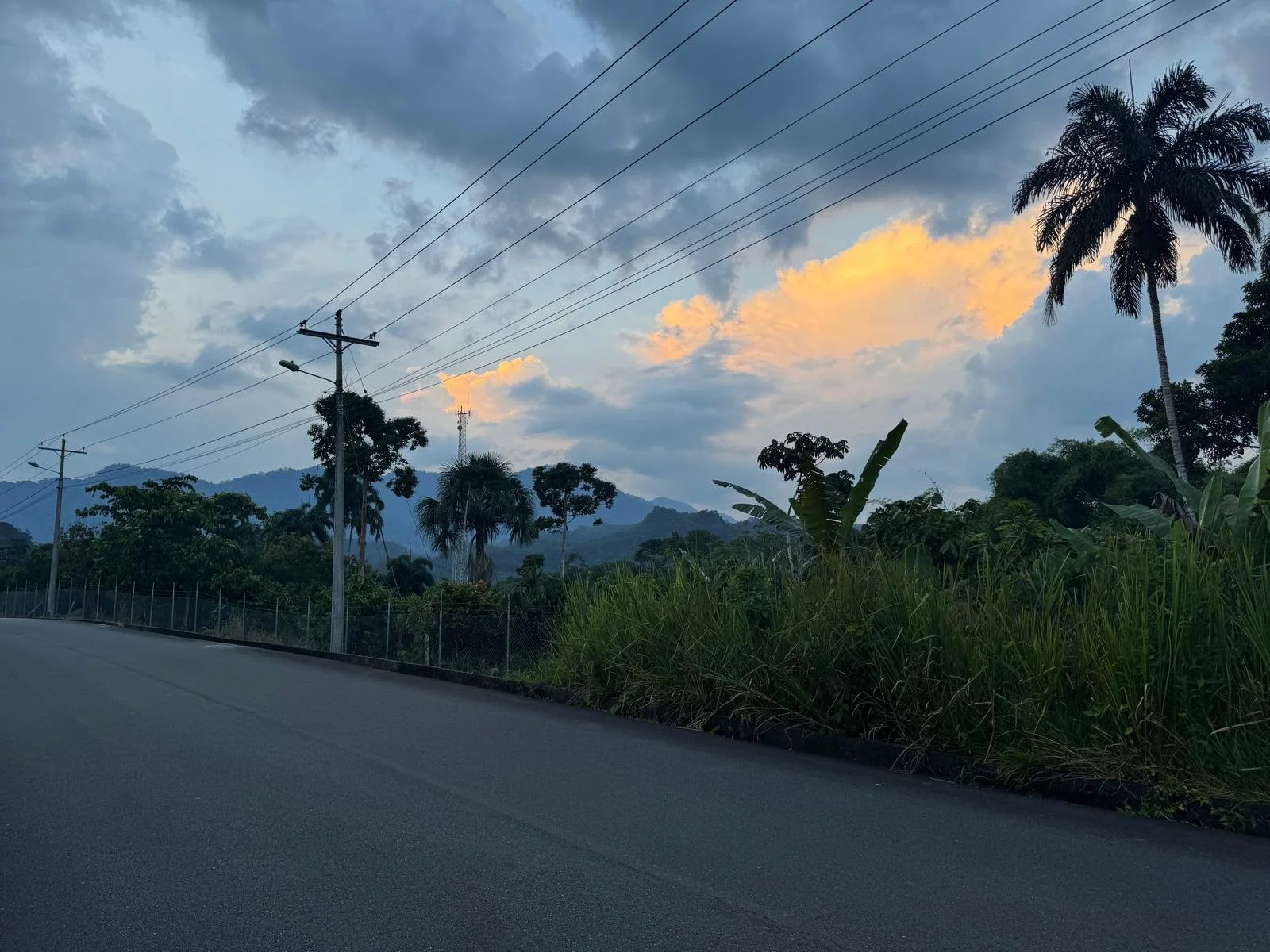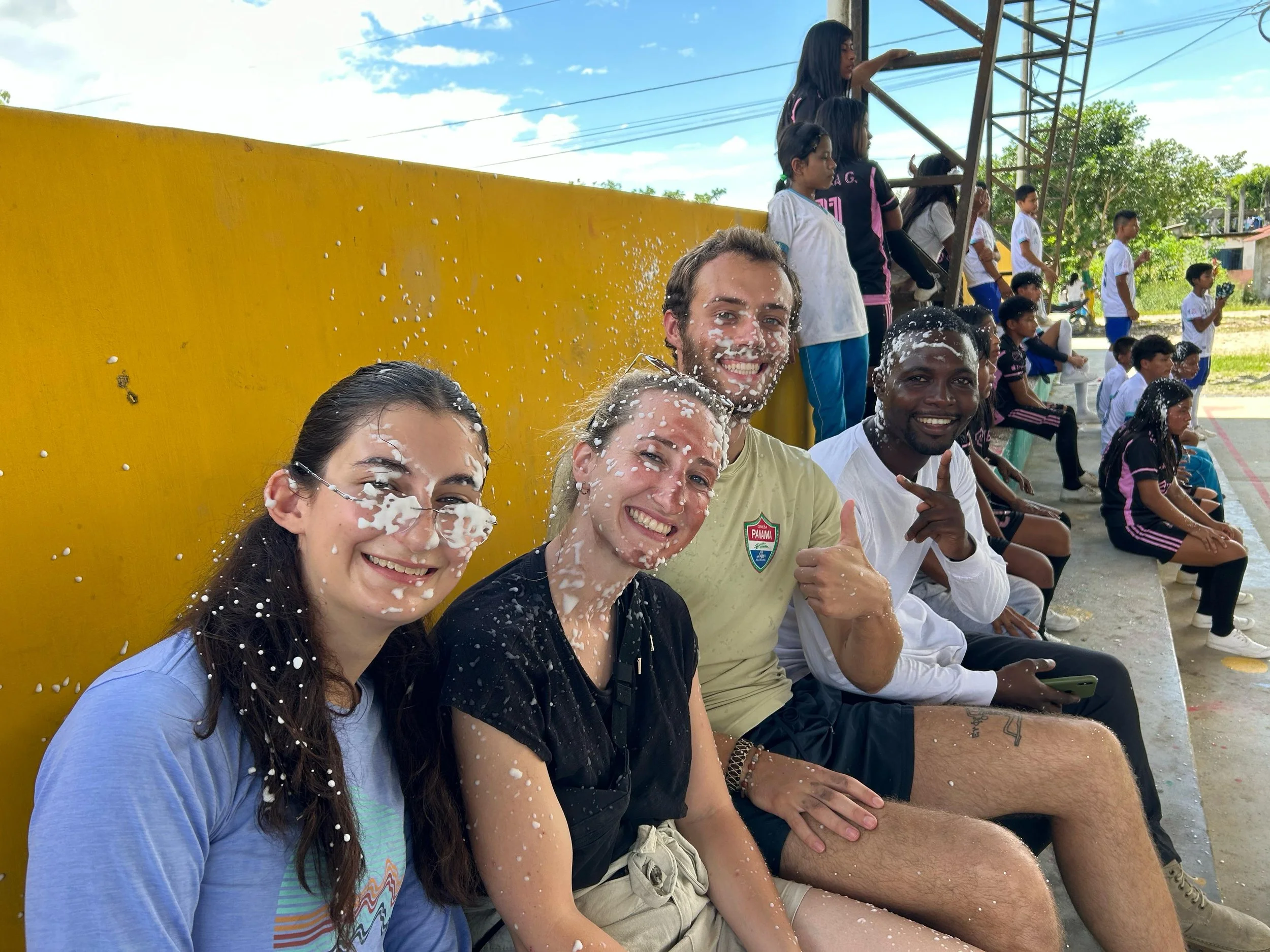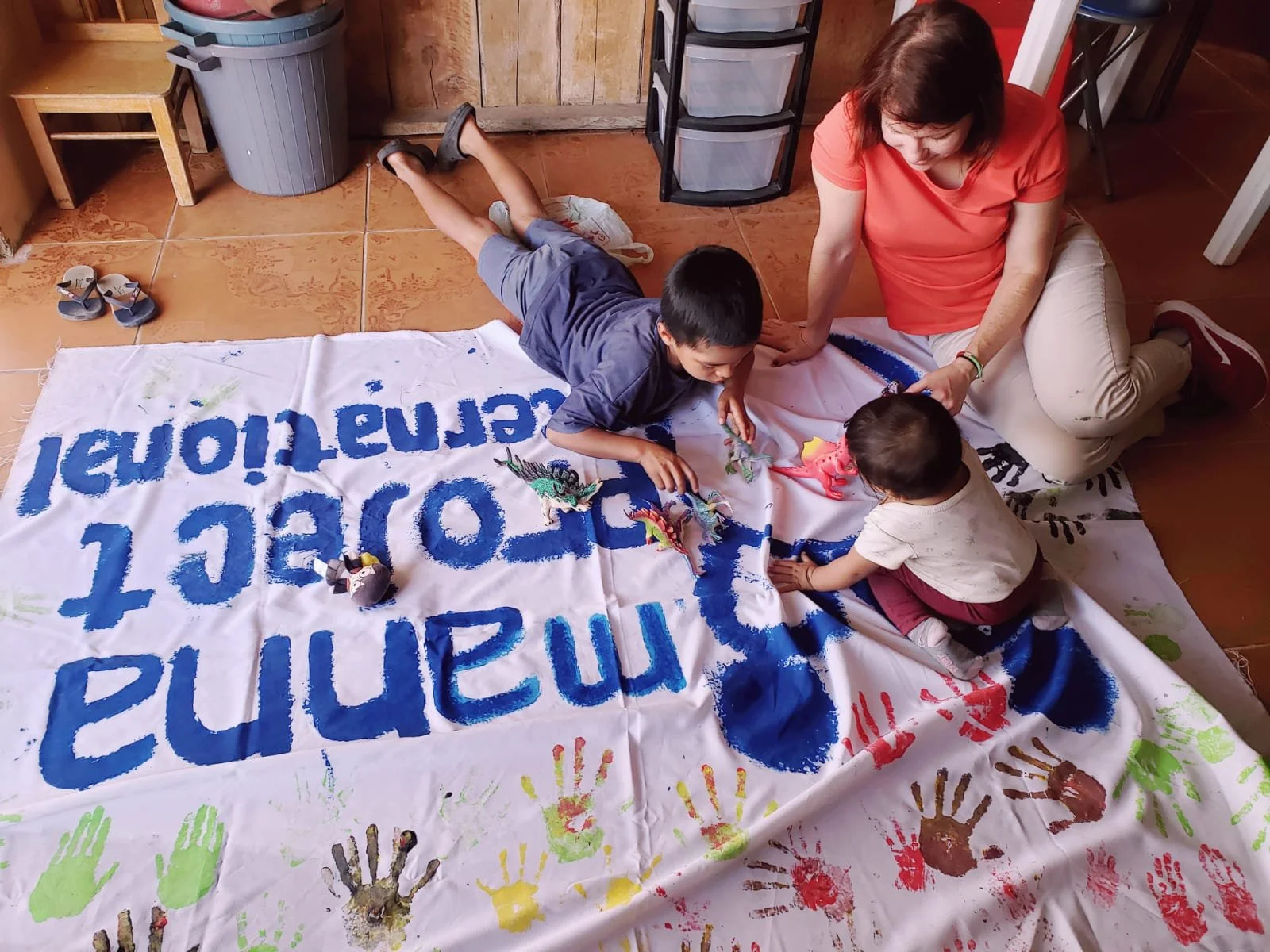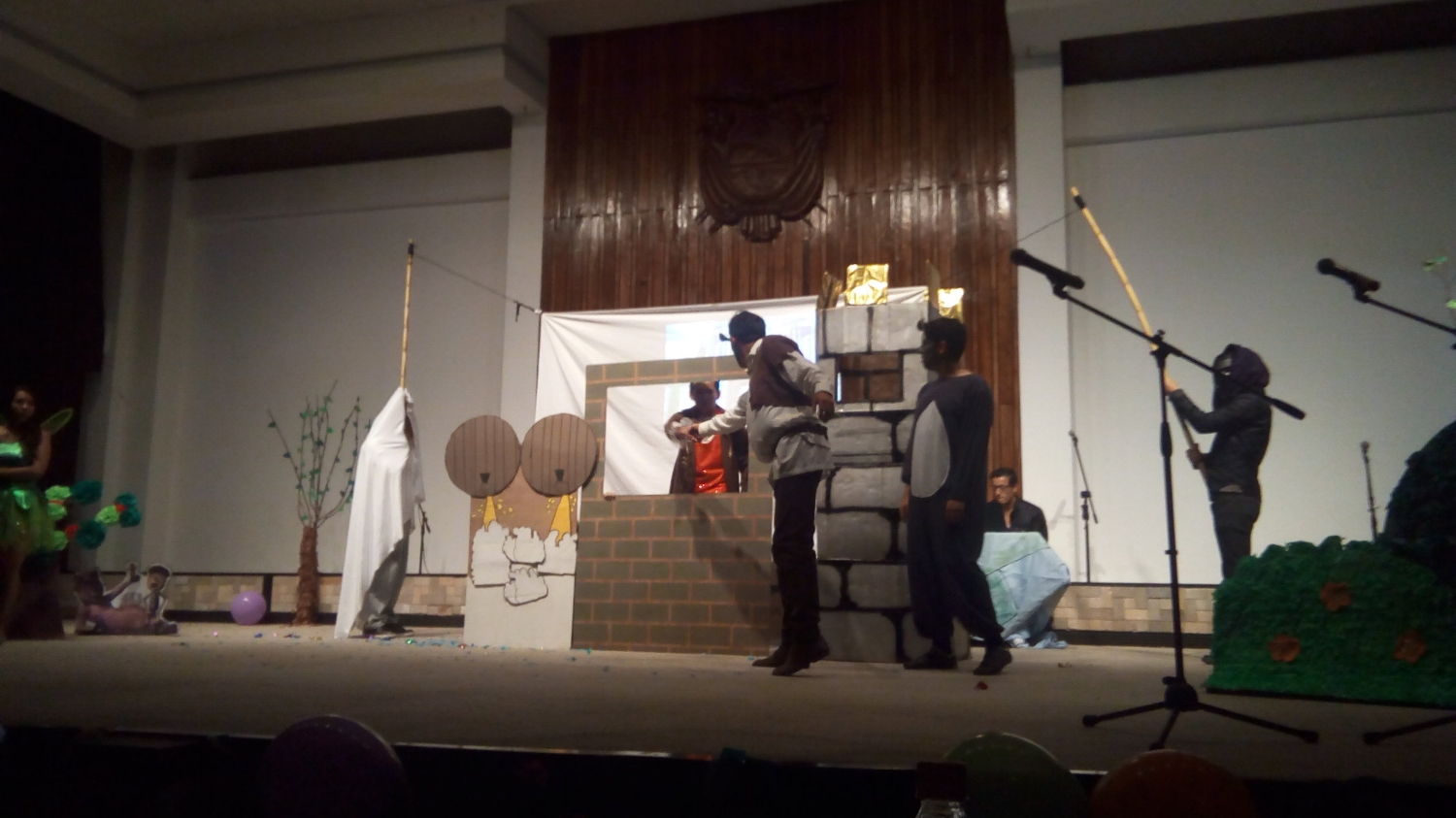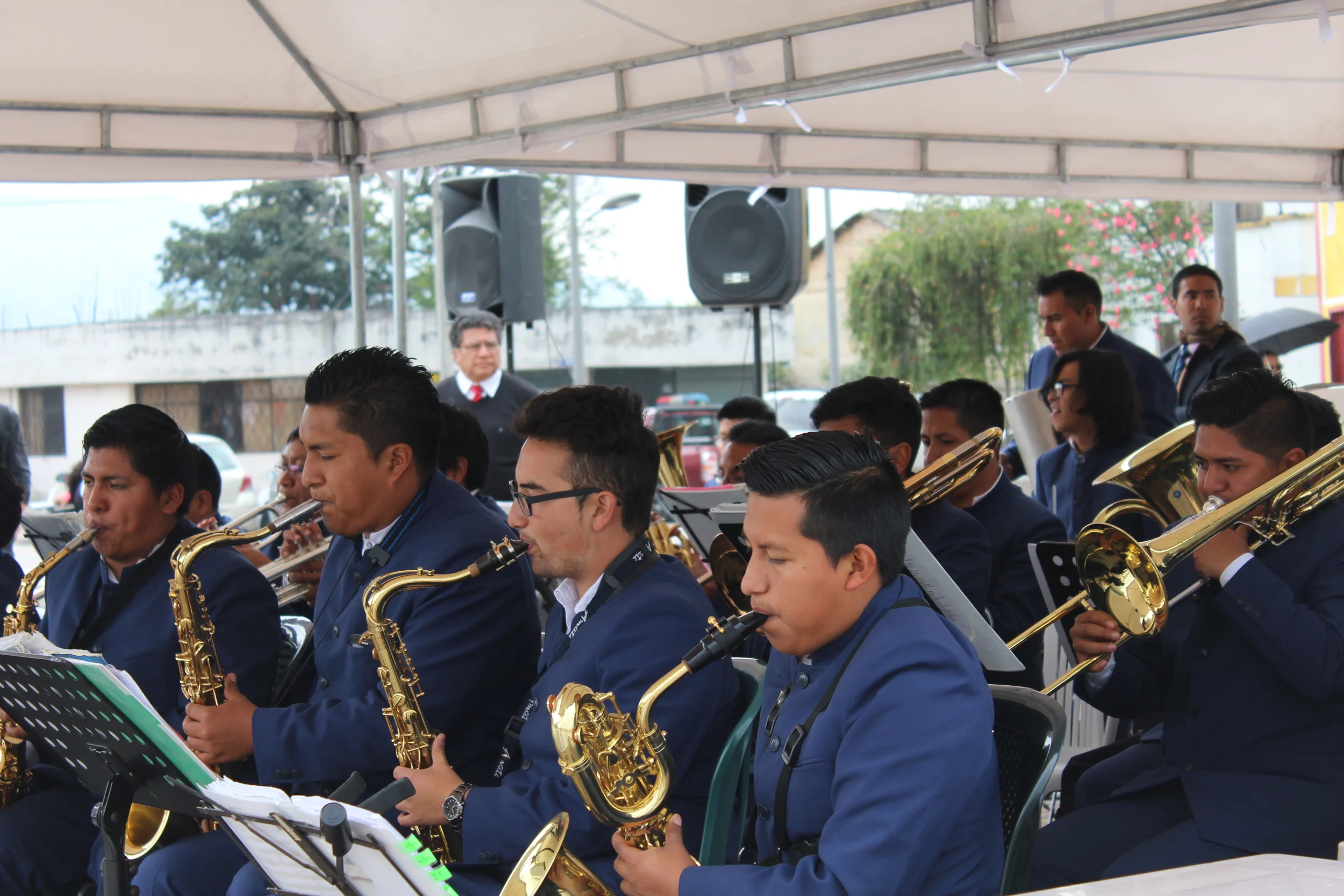When I packed for my 3-month internship to Ecuador, I made sure to include my Bluetooth speaker. I pictured myself lying on the beach, laughing with my friends, and playing music to fit the day’s mood. Little did I know, this speaker would serve a totally different purpose. The first time I took the speaker out of my bag wasn’t for a weekend on the beach, or even an evening at home, it was to provide a little comfort to a girl who really needed it.
Hogar de la Madre is a home for adolescent, single moms and their children. Right now, all of the moms are between 15 and 17 and, besides the two girls who are pregnant, they are each caring for a baby girl. The shelter is more like a small neighborhood than a home, with various buildings for different uses, including bunkrooms for the families, a separate kitchen just for eating, and a nursery full of cribs for when the mothers are busy. The home has a very unique atmosphere that felt impossible to understand after only a few visits. The entire place is run by two nuns but volunteers of all types are constantly coming in and out of the front gate. For example, recently a local elementary school came to bring boxes of food and to sing for the girls. I’ve only heard the place quiet twice: once during a prayer walk led by the nuns and once during a yoga class taught by a volunteer. Since the girls have a constantly changing schedule that includes cleaning rotations, doctors’ visits, and therapy sessions, their daughters spend a lot of time exploring their little world on their own. However, the girls are never far from their daughters and have trained their ears to recognize their own child’s cry from anywhere in the compound. It’s a careful balance within the home of caring for the needs of the girls and teaching them to care for the needs of their daughters. It’s also a heavy place sometimes-when the girls are having a tough day or their babies won’t stop crying. And whenever I’m there, I’m struck by how useful it would be to have a few more sets of eyes and hands.
Just like the girls, I have a different schedule every time I visit. I have spent time watching the babies, cleaning the kitchen, teaching English and even organizing CDs. The only thing I always make sure of is that I will get to spend some time just talking with the girls. One of the girls, Laura*, has opened up to me from the very beginning. She loves the music from the States and constantly watches Youtube to find new artists. Before arriving in Hogar de la Madre, she was a singer on buses and often tells me how she wishes she could leave to sing again. She has big dreams of becoming a Youtube star and moving to LA, where she (and her daughter) can meet her favorite singers: Ariana Grande and Selena Gomez. She sounds like the typical teenage girl and it wasn’t until last week that I found out more to her story.
She, like all of the girls in the home, is there for a reason. For some, it’s because the court ordered it, for some, because their parents ordered it. For Laura, it was a mix of the two. She was a successful bus singer at 16, able to make several hundred dollars a week-which would have been enough to begin a life for her and her daughter. Instead, she was spending the money on drugs. After having trouble with the law, her mother decided enough was enough and sought help. This help came in the form of Hogar de la Madre. Here, Laura has no access to use drugs and must rely on other people entirely to provide for her and her daughter, something she very much resents. She also still feels unlike the other girls. Although the others have accepted their home, she longs to be away from it. She spends most of her time thinking of how and when she will be able to leave.
Her frustration with her situation became the unexpected purpose for my Bluetooth speaker. Because the nuns prohibit the un-monitored use of electronics in the home, she can’t hear the latest music or watch the latest videos and it makes her feel isolated, something even I can understand. So one day, I decided to bring my speaker and we spent an hour listening to all her favorite artists. I could see her stress slipping away as she began to sing along. I really believe that for a few minutes she forgot how frustrated she was to be in a place she didn’t want to be in. The speaker has since been enjoyed by the other girls, too. Last week, they all got in trouble and we had to deep clean the kitchen and classroom areas. At first I expected everyone to be angry the whole time but when I turned on some music, the girls cleaned with smiles on their faces and a few even danced. Their happiness spread even to their daughters, who barely even cried that day.
I often wish that I could speak better Spanish and had more time to help with the hundreds of needs at Hogar de la Madre. There are so many things I want to tell them and so many ways I want to encourage them. From the moms who have a chance to rebuild, to their daughters who will surely have an easier life, there is so much potential inside those walls. It’s hard to fully foster that potential, though, with two 2-hour visits per week. So I think for me, with my limited time, the most valuable thing I can provide is a chance to feel like kids- to have some time to forget the hand that life has dealt them. Even though I can’t personally heal their past or provide them a completely secure future, I’m genuinely thankful to be the one who provides the music.
*Name has been changed.
Jessica is a short term intern with Manna Project International-Ecuador. To learn more about our internship programs and work with organizations like Hogar de la Madre, check out the Ecuador Programs Page.

